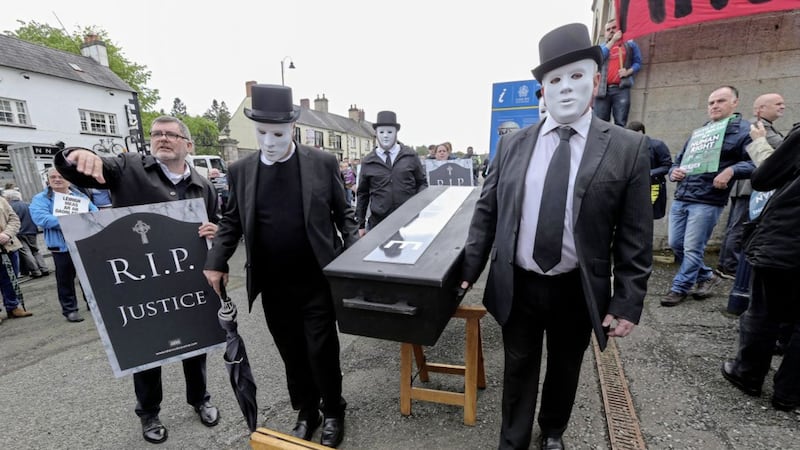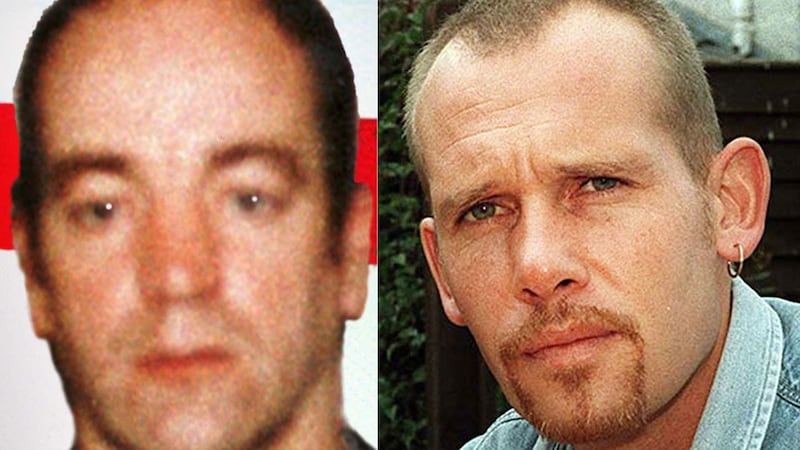RELATIVES of people killed during the Troubles will hand in a letter at 10 Downing Street today opposing the British government's controversial legacy bill.
Under the disputed proposals civil legal cases can no longer be brought and some inquests will not be heard while immunity from prosecution will also be granted in certain circumstances.
Ten relatives of people killed have travelled to London today to show their opposition to the disputed The Northern Ireland Troubles (Legacy and Reconciliation) Bill - which has been branded 'the bill of shame' by campaigners.
They are expected to hold a protest at Parliament Square at Westminster, where a black coffin will be put on show. The coffin will then be carried to the gates of Downing Street where six relatives will hand in a letter outlining their opposition to the bill. While in London relatives will also lobby MPs.
Among those taking part will be Mark Kelly, whose 12 year-old sister Carol Ann died after being struck on the head by a plastic bullet fired by a British soldier in May1981.
“This bill will deny all families who had loved ones killed truth, justice, and accountability, irrelevant of who the perpetrators were," he said.
“It will close down investigations, inquests, police ombudsman inquiries, and civil cases."
Mr Kelly said the bill has no support.
“These investigative processes are working perfectly well, and to good effect, on behalf of families save for interference by the British government," he said.
“That is precisely why the British government has unilaterally tabled this amnesty bill despite being fully aware of universal opposition to their amnesty plans. There is no support for this bill whatsoever."
As well as political opposition to the proposed legislation he added that "victims from across the community oppose the bill".
Alana McShane's brother Gavin McShane (17) was one of two teenagers who died after being shot by the UVF in May 1994.
The teenager's mother Maria, who campaigned tirelessly for justice, died last month.
She lost an eye during the 1976 bombing of the Step Inn Bar in Keady, which killed two people, while she was pregnant with her eldest child.
"This bill is anti-rule of law, anti-human rights, and anti-democratic," Ms McShane said.
"No matter what way this bill is dressed up it equates to a blanket amnesty.
“It is perpetrator-centred and perpetrator led. It is anti-victim."
Mark Thompson of Relatives, who has organised the trip, said human rights are being undermined.
“This bill undermines fundamental human rights enshrined within the Good Friday Agreement and the very institutions that flow from the agreement," he said.
“Boris Johnston and Brandon Lewis are usurping the powers of the north’s attorney general, the Lord Chief Justice and judiciary in an unprecedented political overreach by a western government into the criminal justice system.
“They are locking down the courts and administration of justice."
Meanwhile, protests are also planned for Guildhall Square in Derry and at British government offices in Belfast city centre today.
Campaign groups linked to the Ballymurphy massacre, McGurk’s Bar, and Springhill/Westrock massacre families and others are expected to take part.
Ciarán MacAirt of the Time for Truth campaign said the British government's "unilateral decision to bin the Stormont House Agreement and legislate its bill of shame would embarrass tin-pot dictatorships over the last century".
An NIO spokesperson last night said the bill will put in place an effective information recovery process, underpinned by robust and independent investigations, to provide answers for families, deliver on commitments to those who served in Northern Ireland, and help society to look forward.
"The legislation will ensure that legacy issues are addressed comprehensively and fairly, and in a way that supports information recovery and reconciliation, complies fully with international human rights obligations and responds to the needs of victims and survivors, and society as a whole."








